#AutomotiveStartups
Faraday Future Wraps Up Dispute With Main Investor Without Incident - What Now?
Faraday Future, the Chino-American EV developer that’s always in dutch, said Monday it has established and signed a new restructuring agreement with its main investor, Evergrande Health Industry Group Ltd. The deal concludes a rather ugly legal dispute between the two — one which placed Faraday’s intellectual property and finances in serious jeopardy.
Following the departure of co-founder Nick Sampson in November, the automaker found itself seeking new financing opportunities. Evergrande, which purchased a majority take in the EV firm via its summer acquisition of Season Smart, attempted to block new investments while Faraday accused the company of attempting a forcible takeover of the automaker by withholding funds earmarked for outstanding debts. Those funds were essential in helping it reach agreed-upon production targets.
You Can Now Legally Invest In Faraday Future…
Faraday Future’s path to glory has been complicated to say the least. A series of ludicrously ambitious moves have been plighted with failure, followed by renewed hopes that were ultimately dashed. Incredibly, the aspiring automaker still exists and intends to begin production of its first electric vehicle once its money troubles are over.
Unfortunately, the company is currently engaged in a bitter legal battle with its biggest investor, China’s Evergrande Group, after a planned $2 billion investment went south. The reasons as to why are as foggy as the memory of a heavy drinker but Faraday wanted to trudge onward anyway. Initially, that seemed impossible — especially considering Evergrande held the ability to block any additional investments into the company. However, an interim ruling by a Hong Kong arbitration court has granted Faraday relief to seek financing without approval.
Faraday Future Co-founder Calls It Quits; Majority Shareholder Has Odd Debt Solution
Faraday Future co-founder Nick Sampson has quit his executive post as the aspiring automaker continues struggling with finance issues relating to its latest financial backer and China’s second-largest real estate developer, Evergrande Group.
That leaves CEO Jia Yueting as the company’s only founding executive left on staff. But it would appear he might also leave, albeit under duress, if Faraday’s largest shareholder gets its way. While it’s not obvious exactly who shot first, the electric vehicle firm and Evergrande are at each other’s throats — ruining a $2 billion deal that was supposed to save the company and get its ambitious debut model, the FF 91, into production. Apparently, it was all too much for Sampson.
Faraday Future Confronting Layoffs, Pay Cuts, Probable Corporate Doom
Following a previous article about Faraday Future, the manufacturer reached out to yours truly to clarify a few things. First of all, the company deemed the headline and body a bit “jagged.” Understandable, as no manufacturer wants to be called “America’s Worst Automaker” by some bespectacled creep sitting behind a keyboard. Faraday’s spokesperson also noted that deliveries would not begin in December and that the vehicle fire we referenced was a “minor incident” involving a pre-production model undergoing testing at the firm’s Hanford manufacturing facility.
Actually, that makes things sound a little worse than initially reported, as it appears the company doesn’t have a production date anymore. But I will acquiesce that I could have been clearer with that’s going on with its new financial backer, Evergrande. The pair have been at each other’s throats over money for a while, which is important because the spat is now costing people their jobs. We really need to get into the nitty gritty as to why.
Checking In With Faraday Future, America's Worst Automaker
Faraday Future’s summer fling with Chinese real estate group Evergrande, which invested $800 million into the company last June, appears to be over. The “automaker” is allegedly trying to back out of its arrangement after its CEO and founder, Jia Yueting, requested an additional $700 million in funding. The official deal calls for another $1.2 billion over the next two years.
Faraday has a real knack for screwing over anyone who lends it any kind of financial help, and it looks like its biggest investor doesn’t want to get burned. As a result, the carmaker wants out and Jia has begun seeking arbitration to abandon the sale.
So far as we know, Evergrande stipulated that the company had to hand over its intellectual property and begin mass production of the FF91 before year’s end — otherwise Jia will be ousted as CEO. Officially, Faraday says it’s on track for December deliveries, but all we’ve actually seen are a few side panels being passed around by robots and one completed shell. Meanwhile, the manufacturer’s only completed pre-production prototype was reported to have caught fire last month, following an event where it was shown to employees and their families.
Faraday Future Sets up Headquarters in China, Promises New Models and 5 Million Cars By 2028
Evergrande Health Industry Group Ltd, which owns a 45 percent stake in U.S.-based Faraday Future, said Tuesday that the electric vehicle startup has officially moved its headquarters to China. The group claims Faraday now plans on building five R&D and production facilities across the country over the next decade.
The intended goal is to have the startup reach an annual production capacity of 5 million vehicles within 10 years and launch multiple “premium to entry-level segments for the global auto market, to build an internet-based intelligent mobility ecosystem,” Evergrande said.
It sounds a little premature for a company that managed to evade certain death by the skin of its teeth — and only just snagged a manufacturing facility — a few months ago.
What's the Chinese Electric Car Startup Survival Rate? One Percent, An Investor Predicts
China has bit of a gambling problem when it comes to electric car manufacturers, though it should probably be referred to as a “gambling solution.”
The country dumps vast sums of money into hundreds of EV startups, effectively hedging its bets by placing chips on absolutely everyone. With $15 billion already invested, the nation intends to put another $47 billion toward the cause — plus whatever funding investment firms decide to contribute. While the strategy has definitely stimulated the economy, created jobs, and supersized the industry, there’s growing concern that creating a battle royale between startups could blow up in China’s face.
Even if it doesn’t, there’ll still be a bunch of automakers eating each other until only a handful remain. Previous estimates had that number riding around 5 percent of the whole. But NIO Capital, the Chinese investment firm that’s already invested a gratuitous amount of funds into advanced automotive tech, claims the actual number will be far lower — probably around 1 percent.
Faraday Future Shows First Body in White FF 91, Claims Deliveries Begin in December
Take the following information with a golf ball-sized grain of salt. Faraday Future, the automotive startup that’s been teetering on the verge of collapse for years, says deliveries of the FF 91 will begin in December. Despite being ghost-funded by a Chinese billionaire who’s been blacklisted due to unpaid debts, losing a factory deal with the State of Nevada, witnessing a mass exodus of its staff, and accumulating heaps of debt, Faraday claims it’s ready to move forward with assembly.
You’ll have to excuse the skepticism. But the brand has burned us in the past — delivering an ambitious but incomplete prototype, loads of hype, and little else.
Saying that production is an assurance with no request for additional investment is like getting an email from a Nigerian prince who just wants you to know that he’s good on the money front and wishes you well.
Sink or Swim: What Kind of Automotive Startup Will Byton Be?
After showcasing its first concept vehicle at CES 2018, electric car startup Byton has come back with another for CES Asia. On Monday, the company also announced it had recently raised more than half a billion dollars in capital.
Byton looks to be on the right path, but the trail it’s marching down has already been taken by other EV startups and resulted in failure. For example, Faraday Future drove itself into a brick wall after failing to deliver on its promises for two years straight. It suffered development delays on its prototype, engaged in some sketchy deals, and practically collapsed when its main Chinese backer ran out of money. That isn’t to presume Byton is the same kind of company, but it’s offering the same type of car under vaguely similar circumstances.
Loaded with tech, Byton’s autonomous, all-electric K-Byte sedan and its SUV sibling (the M-Byte) are right in line with every manufacturers’ future vehicle concepts. They’re perpetually connected to the web, capable of self-driving, and chock full of touchscreens. But they aren’t real cars yet, even though the startup suggests they’ll be available for just $45,000 — and relatively soon. The SUV will apparently go into production in 2019, with the sedan following by 2021.
Faraday Future Claims It Rustled Up $1 Billion in Funding and a New CEO
Faraday Future is the real-life equivalent of a franchised movie monster. While not a physical manifestation of evil, destined to rip apart promiscuous teens in increasingly elaborate ways, it does possess the unique ability to keep coming back every time you thought it had finally been destroyed.
Despite having lost a factory in Nevada, a chief financial officer, chief technology officer, lead designer, head of manufacturing, Formula E team, and the public’s trust (you can add bankruptcy rumors to the mix, too), LeEco chairman Jia Yueting now claims the company has suddenly managed to raise $1 billion in funding.
Jason Voorhees, eat your heart out.
Faraday Future's Bizarre Response Letter to the Public
Faraday Future has issued a strange response to the criticism surrounding its most recent high-profile “staffing adjustment.” Last week, news broke that the startup automaker’s chief financial officer, Stefan Krause, left the firm in October — forcing media outlets to play catch up. When the information made its way to The Truth About Cars, we dug back into Faraday’s current condition and reported that things were still a mess at its California headquarters.
Unwilling to let the automotive media monopolize the conversation, Faraday released a response letter. In it, the company accuses Krause of being fired for “dereliction of duty” and said it would be taking legal action against him. It’s the first time the startup had updated its media page in months and is a peculiar reaction to a staffing change that, at the time, seemed like the least of Faraday’s worries.
Seriously, How Much More Abuse Can Faraday Future Take?
It’s been a while since we’ve discussed the ongoing plight of Faraday Future. While most of this year — and all of the last — was riddled with missteps from the automotive startup, we’ve taken a break from reporting on it. That wasn’t because its situation had improved, however. Oh boy, is that ever not the case.
Earlier this month, details emerged that the business was preparing to file for bankruptcy, followed immediately by the firm denying the validity of those claims. Then, news broke that Faraday’s chief financial officer, Stefan Krause, had quietly resigned in October — despite having been hired specifically to solve the company’s financial troubles back in March.
This got us wondering as to exactly how much more can go wrong before Faraday Future finally throws in the towel.
Faraday Future Officially Ends Its Relationship With Nevada
The honeymoon is over before it even began. The State of Nevada is ending its relationship with automaker Faraday Future, which once promised to build a vast and glorious manufacturing facility within its borders — in exchange for tax incentives.
Eschewing construction of its $1 billion promise in North Las Vegas due to financial woes, Faraday was insistent that it was going to begin construction on a smaller assembly plant before tackling the rest of the build site. According to the company, a bijou factory was to be the first phase of a multi-stage approach intended to bring the FF 91 swiftly to market.
In July, Faraday Future announced it would be placing that project on hold as well, but remained committed to using the Nevada site for long-term vehicle manufacturing. Until then, it said it would shift its business strategy “to position the company as the leader in user-ship personal mobility — a vehicle usage model that reimagines the way users access mobility.” If anyone knows what that gibberish means, we’d love to know. It’s been several months and we still can’t decipher that sentence into useful information.
Lucid Motors Reportedly Considered Selling Itself to Ford; Fundraising Continues
It’s the dream of every startup to bring forth an exciting idea and then allow itself to be purchased by a much larger and less imaginative company to ensure the concept never reaches fruition. Lucid Motors, one of the few automotive startups attempting to temper hype with reasonable expectations, is approaching that dream as rumors of its attempt to sell itself to a larger automaker begin to proliferate.
While most of the talk surrounding the potential sale of the company is just that, Lucid has been desperately seeking funding for the production of its electric car in Arizona. Unnamed inside sources claim the company reached out to Ford Motor Company and even held preliminary takeover talks.
LeEco Lays Off Majority of U.S. Employees; Likely More Bad News for Faraday Future
China’s Netflix equivalent, LeEco, confirmed it would be eliminating the better part of its North American workforce today. LeEco has recently gotten involved in a myriad of expensive tech-focused endeavors that have wound up screwing its finances six ways from Sunday. One of those projects was serving as the primary financial backer of America’s Faraday Future, the electric car company we’ve been scrunching our faces at for over a year now.
Faraday seems to have encountered or created every problem an automotive startup could imagine and, with its primary source of income shrinking its U.S. employee base by 70 percent, things have never looked worse.




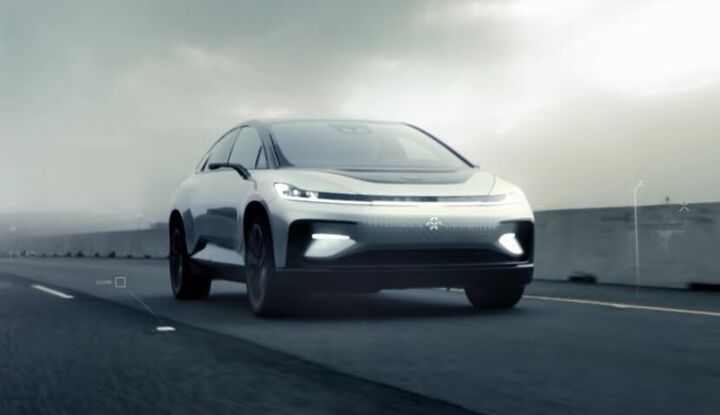

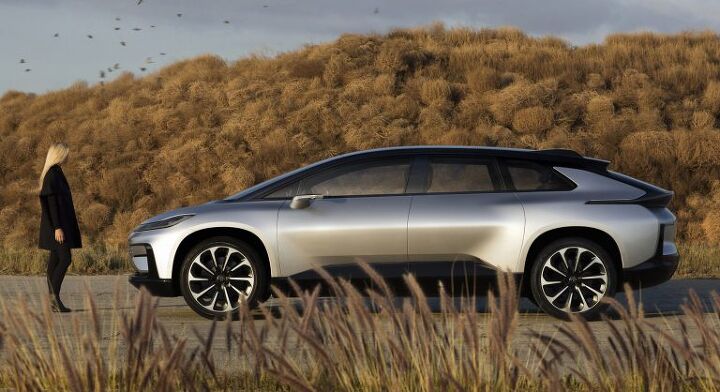
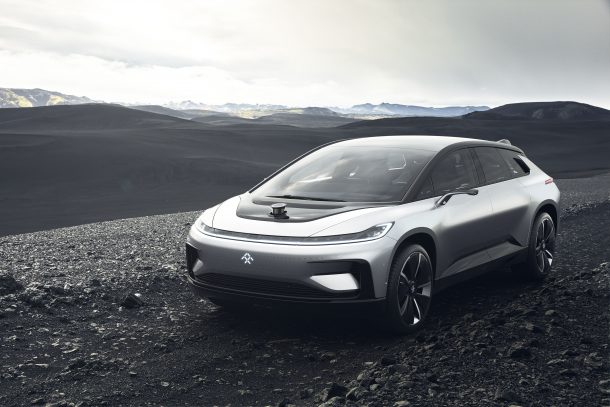

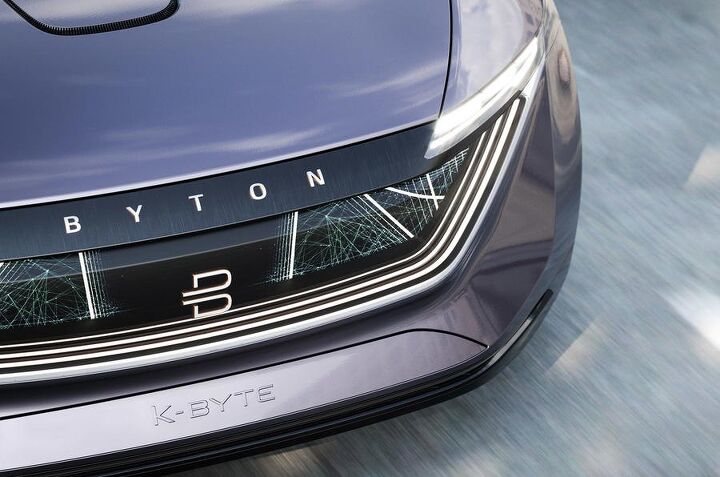



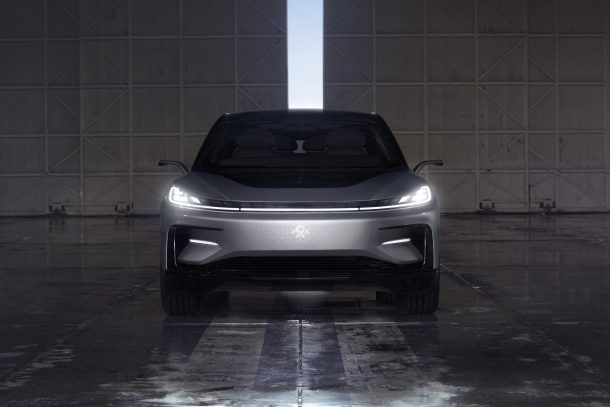

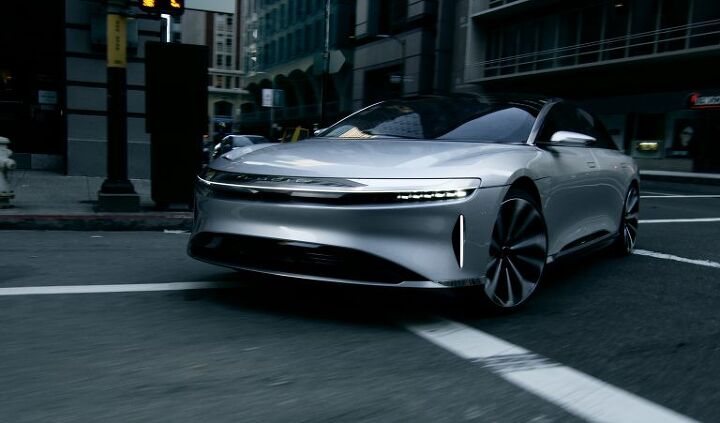
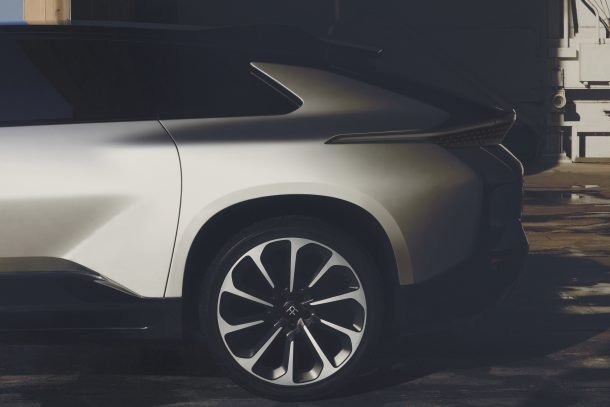












Recent Comments